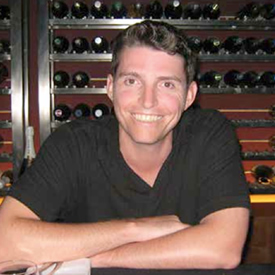PwC Assaf Lennon Memorial Lecture: The effect of megatrends on the future of work
10 December 2015
Shifts in global economic power, rapid urbanisation, climate change, resource scarcity and technological breakthroughs, will have a profound impact on your work prospects in the coming years, students at Lancaster University Management School were told last week.
This emerged from new research exploring future trends in demographic and social change by PricewaterhouseCoopers (PwC). Senior partners from the world’s number one accounting firm by revenue, Jon Andrews and Anthony Bruce, revealed this in a lecture on The effect of megatrends on the future of work.
They joined forces with staff and students of Lancaster University Management School to commemorate the memory of the late Assaf Lennon (pictured), a senior management consultant and long-time friend and contributor to the University.
Discussion after the inaugural PwC Assaf Lennon Memorial Lecture addressed the graduate labour market and future developments in business analytics as well as business implications of the UK’s possible exit from the EU.
The lecture also represented the launch of the PwC Annual Assaf Lennon Memorial Essay Prize open to first year students studying the Management School’s first year BBA course An Introduction to Management and Leadership. The judging panel consists of executives from PwC; David Lennon; Professor Angus Laing, Dean of Lancaster University Management School; Professor Claire Leitch, Head of Department of Management Learning and Leadership; and Dr Anthony Hesketh, the course’s director, and long-time friend of and collaborator with Assaf Lennon.
Assaf’s family and friends were also in attendance. David Lennon, Assaf’s father, gave a short presentation on the importance of raising awareness of lung cancer, even for non-smokers such as Assaf. Penny, Assaf’s wife, his parents David and Vicky, together with Jon Andrews and Anthony Bruce of PwC were each presented with University scarves.
Dr Anthony Hesketh of Lancaster University Management School and the course’s director said: "We are delighted to pay this tribute to a person who gave so much to Lancaster in terms of his time, colossal business knowledge and wonderfully warm personality. Assaf offered advice, internships and work to our students who were universally admiring of a senior consultant who gave as much care and attention to helping them as he did to some of the most senior executives in the globe’s largest organisations. We miss him."


